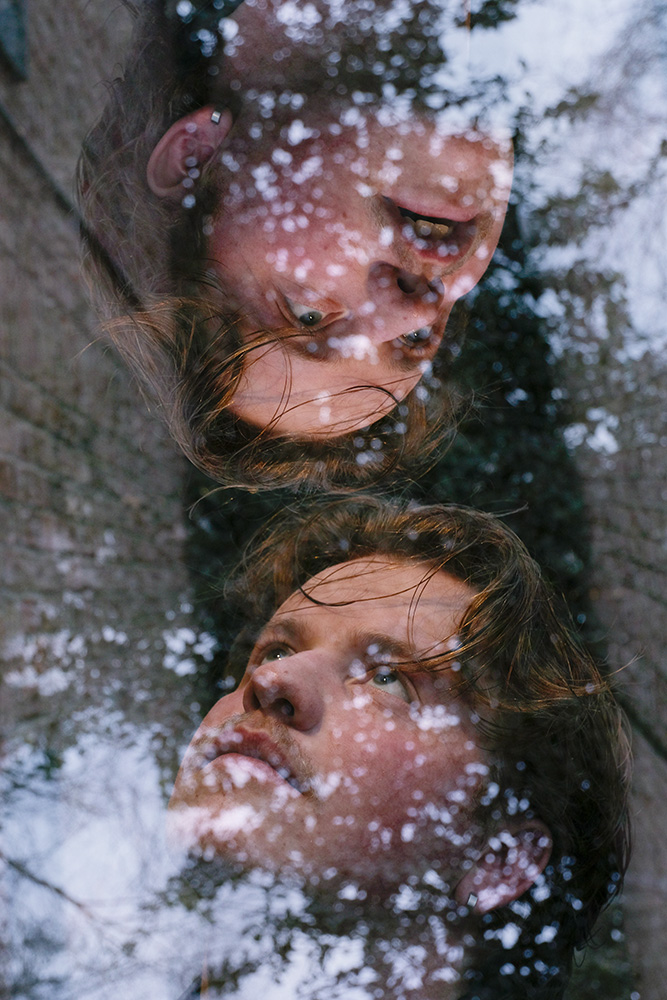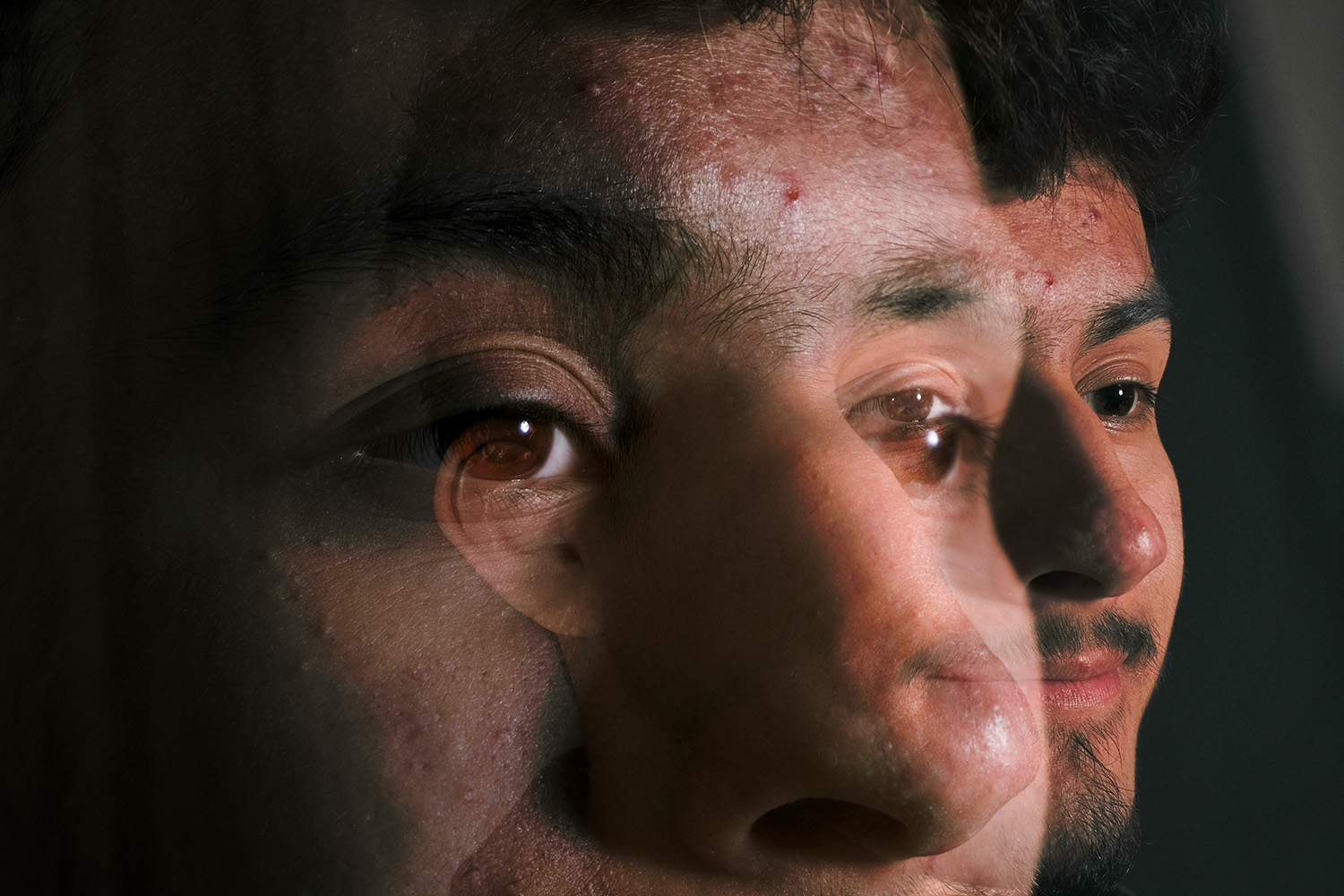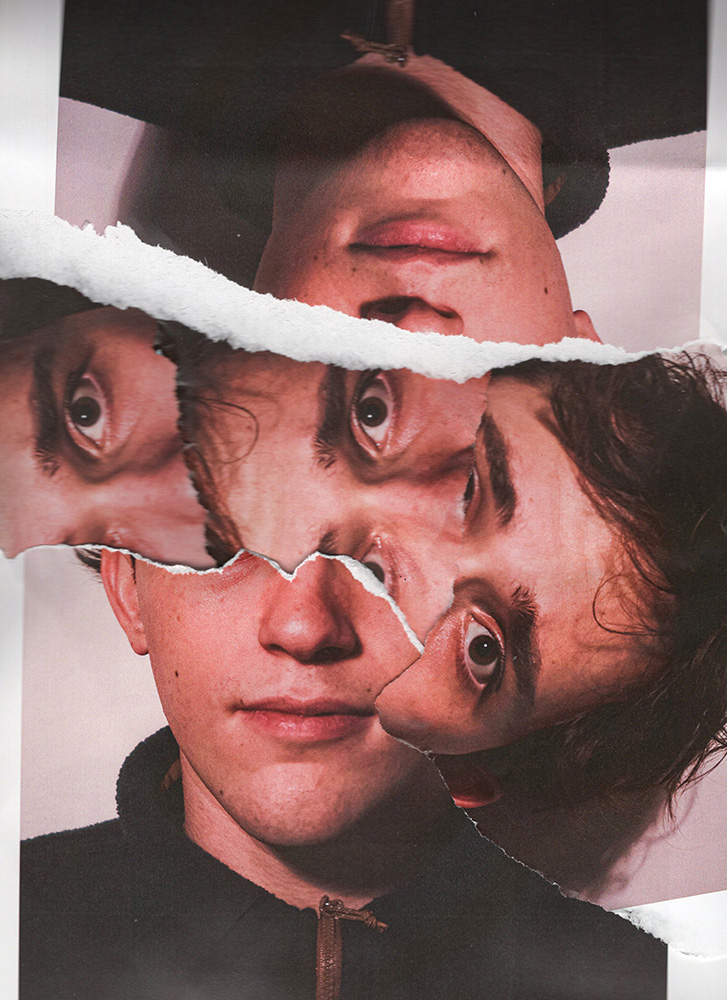Dreams can vary from person to person, an experience one can only have with themselves. However, dreams can also be a connecting human reality. The wonder and fear they hold can be seen across both cultures and campus.
Sleep paralysis is a condition caused by brief muscle control loss that happens just after falling asleep or waking up, according to Sleep Foundation, a website dedicated to dependable sleep health information. The website said people may also experience hallucinations during episodes of sleep paralysis.
Associate professor of folk studies and anthropology Kate Horigan said there is a folklore theory that suggests there is a universally shared experience behind sleep paralysis. The theory holds that everyone feels some sort of ominous presence, she said.
“Some people experience it as a feeling or a cloud, but some people talk about it being a particular person,” Horigan said.
She says there are certain characters that are culturally specific such as the devil or a neighbor, but the overall experience is the same.
“What connects them is the feeling of being weak,” Horigan said.
She said a lot of American culture around dreaming is influenced by neurologist Sigmund Freud, the founder of psychoanalysis. Freud believed that dreams are manifestations of repressed subconsciousness.
“Things we cannot reconcile with our conscious mind or are trying not to deal with emerge in our dreams,” Horigan said.
She said that she believes the reason dreams are paid so much attention by psychologists is due to the shared cultural experience. Many people around the world dream about the same things.
“That’s something that is very personal and private when you’re by yourself in your own head, that you can have the same experience that someone else is having,” Horigan said.
Students across the Hill shared their differing yet connecting experiences with dreams.
Chained to Liminal Space
Goshen freshman Nico Silverthorn said that he has struggled with sleep paralysis since moving to college.
Silverthorn said the phenomenon occurs when he tries to sleep in a room with a bright light or any sort of noise. He said his theory on why this happens is that his brain is awake and concentrating on the sound while his body is asleep.
“I slip into the dream exactly how I was when I was awake, but I have this overwhelming kind of weight on me,” Silverthorn said.
Silverthorn said the first time he experienced this sensation was at a sleepover during the summer of 2022.
He said he was watching YouTube on his phone and suddenly had an internal panic wash over him.
“I started trying to move, but it’s like slow motion, almost like I’m consumed in molasses,” Silverthorn said.
He said the next series of events all felt lagged, like it took 10 minutes for them to unfold.
“I pushed myself up slowly and turned to my friend next to me, and I started reaching out to them,” Silverthorn said. “And right before I touch them I kind of wake up, and I’m in the first position I was in, watching videos on my phone.”
Silverthorn said his most intense dream happened during the spring semester of 2023. He said he was watching videos on his phone in his dorm with his roommate when he slipped into his dream.
“Everything gets really slow, and I’m freaking out and scared because I closed my eyes, and I couldn’t open them,” Silverthorn said.
He said eventually his eyes opened back up, but his vision was greeted by a black figure standing next to him.
“It kind of reaches out and touches my hand, and I freak out and roll off of my bed,” Silverthorn said. “Then I’m falling off of my bed for what feels like 20 minutes.”
Silverthorn said while falling, he could still see his roommate sleeping in his dream, and he felt like he was going crazy.
“I thought there is no effing way I am falling right now, and then I don’t know what happened, but I stepped back out, and it felt like my body got thrown back into position one,” Silverthorn said.
He said he awoke in his bed and was washed with a feeling of disbelief – he couldn’t believe that none of his dream was real.
Silverthorn said when he first started experiencing sleep paralysis, he could not tell if he was dreaming, but now he knows when they are occurring.
“Now when the slowing feeling starts, I kind of try to fight it because I obviously don’t like it,” he said.
Silverthorn said he has a love-hate relationship with the dreams he experiences.
“I like it because it’s cool to talk about, and I can tell my friends about them. But on the other hand, I hate it, and it’s not a good feeling,” Silverthorn said. “It’s just fear and not fun.”
Silverthorn said one dream sticks out to him.
He said he fell asleep in his living room on a beanbag, but a shift happened, and the space suddenly felt darker.
“All of a sudden, I start hearing these chains coming down the stairs,” Silverthorn said. “But when I turn around, there is nothing behind me.”
Silverthorn said this was followed by a floating feeling.
“I’m now, like, rotating in a liminal space, and by the time I do a full 360, I’m sitting back on the beanbag,” Silverthorn said.
He said when landing, he realized whatever was coming down the stairs was now in the room with him.
“It was like that feeling when someone’s right next to you, but you can’t see them, and all I was thinking was, ‘Fuck,’” Silverthorn said.
He said as he was feeling this sensation, he heard little squeaks.
“I started hearing little mice and could feel them biting my leg,” Silverthorn said. “I’m like, ‘I hate this; I hate this,’ and then I woke up, and I was on the beanbag.”
Silverthorn said he experiences dreams like these about once every two weeks — usually during a nap — and that they stem from stress.
“School pushes me a lot, and I’m working a lot, so I nap a lot, and that’s when it happens,” Silverthorn said. “It’s an awful pattern that I go through.”
Phantom Feeling
Wilmore junior Shane Stryker said he struggles with hypnagogic hallucinations and has since he was a child.
Hypnagogic hallucinations are when someone’s brain hallucinates things in the room with them while they’re falling asleep, he said. Stryker said he not only sees things but has once felt them as well.
He said the first time it happened, he was about 9 years old. He remembered waking up and seeing a beach ball floating around his room.
“I really thought it was real and then all of a sudden, it was like a snap, and it was gone,” Stryker said.

For him, he said it was never really a concern since his father and one of his sisters also have these hallucinations. He said it never scared him because he knew it wasn’t real.
On a visit home during an internship in Washington, D.C., he said he experienced something frightening.
Stryker said he was sleep deprived from waking up early and driving 10 hours home to Wilmore. When he arrived home, he said he tried to fall asleep but awoke to see something in his room.
“It was like this really short, I’d say, like, 3-foot figure in my room,” Stryker said. “I looked over, and I saw a hand, and it grabbed my arm, and I could actually, like, feel it grabbing my arm.”
He said he instantly snapped out of the hallucination, and the figure had disappeared. He said he was awake for three hours after the incident.
“That’s the only instance in which I felt something touching me, and that was pretty miserable,” Stryker said.
He said since that instance, he has been experiencing more creepy hallucinations. He said he has these hallucinations two or three times a week, but they have gotten scarier as he’s gotten older.
Stryker said he now sees bugs crawling on the wall and items such as textbooks and notebooks rearranging themselves on his desk, but a recent one stuck out to him.
“I woke up, looked to my left and there was just a floating head,” Stryker said. “Then it flew at me, then I swung at it, and it went away.”
He said he believes these hallucinations stem from genetics, since other family members also deal with it, but he said they happen more often when he is stressed out or sleep deprived.
“I only remember the more terrifying ones,” Stryker said, “It’s like the blink of an eye, and it’s completely done.”
Cinematic Subconscious
Louisville sophomore Eric Garcia said he has bizarre dreams that make sleeping exciting. Garcia said dreams are fascinating to him because they are the nearest he can get to his subconscious mind.
“Dreams are, like, some of the most insane experiences,” Garcia said. “It’s like the closest you get to your subconsciousness, and, for me, I like the things my brain comes up with.”
He said he had a period where he tried to lucid dream, but then those experiences eventually stopped. He said it depends on your skill set if you can lucid dream or not because it’s all about brain power.
Lucid dreaming is when sleepers are aware they are dreaming and, in some instances, can also control their dreams. Much is still unknown about the phenomenon of lucid dreaming, but some researchers believe activity in the prefrontal cortex of the brain is related to their development, according to Sleep Foundation.
He said he started to pay attention to what he was dreaming about around the time of the COVID-19 pandemic shutdown. He said he made a document where he wrote down dreams he wanted to remember.
“I’ve always been, like, the imaginative type of person, and that translated into my dreams,” Garcia said.
Garcia is a film major and said that he sees his dreams like movies, and he eventually wants to make a movie universe that goes along with his dreams.
He said the craziest dream he remembers caused him to wake up shaking and breathing heavily because of how much information it contained, and he did not fully understand it.
Garcia said he was in his dream world when gravity suddenly shifted to the side, causing the world to collapse and everything within it to fall parallel to the ground.
“Everything just started fizzling out and then I was falling endlessly in that direction,” Garcia said.
While falling, he said he saw a massive structure that resembled long animal limbs along with atom structures throughout the sky.
During his endless fall, Garcia said he would go into the atom-like structures and feel something strange.
“I would experience, like, a whole story in an instant, all the emotions and everything at once,” Garcia said. “It was just kind of an emotional shock.”

He said after falling for a significant amount of time and experiencing multiple stories, the experience dissolved, and he was met with a scene of a man holding a box of chocolate chip cookies.
“He opened the box to get a cookie and told me these cookies all represent different life things,” Garcia said.
After waking up, Garcia said he was in disbelief and tried to process everything that happened within the dream.
“It was a first for me; no dream has ever done that for me,” Garcia said.
He said his dreams are all meaningful, even nightmares, and he would never give up dreaming.
“It’s like an extension of you, and for me, I think dreams are a way of your brain trying to tell you something,” Garcia said.
He said there is no way to talk to the subconscious because it is hidden in a person’s mind. He said he feels that his dreams are the closest he gets to a subconscious conversation.
“I feel like finding that connection is so intriguing,” Garcia said.
Creative Memory
Williamsburg, Virginia, senior Ramon Clyburn said he also finds connection through dreaming. He has lucid dreamt and dealt with sleep paralysis since he was young.
He said he thinks lucid dreaming is linked to his insomnia because he is not in a deep REM sleep cycle when it happens.
REM, or rapid eye movement, sleep is a stage of sleep associated with dreaming and memory consolidation, according to Sleep Foundation.
Clyburn said he personally doesn’t know if he thinks lucid dreaming is a real thing. Instead, he feels like he can control his dreams when he is not in a deep sleeping state.
“I feel like I vividly remember what I’m doing, and I can control what I’m doing,” Clyburn said. “It only happens when, like, napping or I just fell asleep.”
However, Clyburn said he deals with sleep paralysis more often than lucid dreaming. Specifically, he gets a locked jaw, his body can’t move, and the room is pitch black.
“My body is in a deep sleep, but my mind is up,” Clyburn said. “It’s the scariest thing because you’re almost, like, in another state of consciousness.”
He said when it happens, he is fearful of falling back asleep because he does not know if he’ll be stuck in his paralysis. He said he feels like he is stuck for two hours, even though he knows in reality it is only about five seconds.
“I’m afraid I’ll be stuck in that position forever, and I won’t wake up, and if I do, I’ll be paralyzed,” Clyburn said.

He said he experiences sleep paralysis and lucid dreaming often because his mind is always full of thoughts.
Clyburn said he is a writer and a musician and believes this creativity helps him remember his dreams.
“When something does stick with me from a dream, I may jot it down,” Clyburn said. “Or if I’m asleep and hear a melody, I’ll try and mess with my keyboard to see if I can figure it out.”
He said his sleep paralysis also stems from depression and overthinking.
“When my mind finally gets time to rest, and it goes to a place that’s unfamiliar and far away, my body wasn’t used to that,” Clyburn said.
However, he said his sleep paralysis is now less severe than when he was younger.
Although he is negatively impacted by sleep paralysis, Clyburn said he also experiences good, immersive sleep with dreams about his mom. His mother passed away when he was 9, and he said he sometimes wishes he could do something as simple as taking a car ride with her. Then he said she will show up in one of his dreams.
“I could see myself driving with her,” Clyburn said. “I hadn’t seen her in 16 years, but hearing her voice telling me everything that’s going on, that was the best one.”
He says dreams like those make him wish he could go back to sleep and not have to get up and start his day.
“I’m thankful for those; I feel like there’s some connection there,” Clyburn said. “It’s a dream, but spiritually or something like that, it’s real.”


